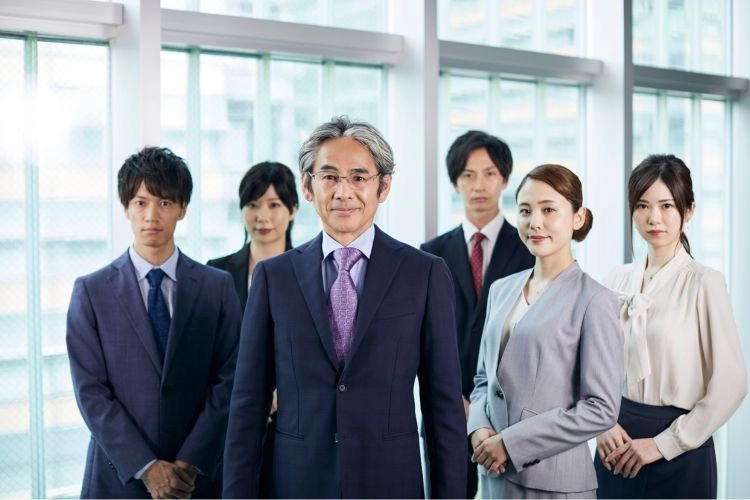The evolution of supplier relationships

For decades, supplier relationships have been governed by a simple equation: can they deliver what we need, when we need it, at the right price? This transactional approach, while efficient in the short term, is increasingly inadequate for today's complex business environment. Companies are discovering that true value creation requires a fundamental shift in how they view and engage with suppliers – moving from narrow procurement metrics to holistic partnerships that consider the full spectrum of social, environmental and ethical impacts.
The limitations of traditional supplier assessment
The traditional supplier evaluation model focuses primarily on three core criteria: quality, cost and delivery reliability. While these factors remain important, this narrow lens creates significant blind spots that can expose companies to substantial risks and missed opportunities. A supplier may excel at delivering products on time and within budget, yet operate in ways that undermine long-term sustainability, damage brand reputation or contribute to systemic social problems.
This transactional mindset treats suppliers as interchangeable vendors rather than strategic partners whose practices directly impact the buying company's own sustainability goals and stakeholder relationships. When procurement decisions are made solely on immediate financial considerations, companies inadvertently become complicit in supply chain practices that may conflict with their stated values and long-term interests.
The business case for holistic supplier engagement
Modern consumers, investors and employees increasingly expect companies to take responsibility for their entire value chain impact. Research consistently shows that a growing majority of consumers consider environmental and social factors when making purchasing decisions, while institutional investors managing trillions in assets have committed to ESG investment principles. This shift in stakeholder expectations makes supplier responsibility not just a moral imperative, but a business necessity.
Companies that embrace holistic supplier engagement often discover unexpected benefits beyond risk mitigation. Suppliers with strong human rights practices tend to have lower employee turnover, higher productivity and more innovative capabilities. Those prioritising environmental stewardship frequently demonstrate greater operational efficiency and resilience to resource constraints. Community-engaged suppliers often provide better market insights and stakeholder relationships that benefit the entire supply chain.
Redefining value in supplier relationships
The evolution toward holistic supplier engagement requires expanding the definition of value beyond immediate cost savings. Forward-thinking companies are incorporating comprehensive criteria that assess suppliers' commitment to human rights, workplace conditions, community engagement, environmental stewardship and stakeholder relations.
Human rights assessment goes far beyond basic compliance checking. It involves evaluating whether suppliers have effective systems to identify, prevent and remediate human rights risks throughout their operations. This includes examining their approach to fair wages, working hours, freedom of association and protection against discrimination. Companies are increasingly requiring suppliers to demonstrate active human rights due diligence rather than simply signing compliance statements.
Workplace conditions extend beyond safety regulations to encompass the overall employee experience. Progressive companies assess whether suppliers provide opportunities for professional development, maintain inclusive cultures and foster employee wellbeing. Suppliers that invest in their workforce typically deliver higher quality products and services while contributing to positive social outcomes.
Community engagement has emerged as a critical factor in supplier assessment. Suppliers that actively contribute to local communities through employment, local sourcing and community development programmes create positive externalities that strengthen the entire business ecosystem. These suppliers often demonstrate greater resilience during disruptions and provide valuable local market knowledge.
Environmental considerations encompass not just compliance with regulations, but proactive efforts to minimise ecological impact. This includes evaluating suppliers' carbon footprint, resource efficiency, waste management practices and commitment to circular economy principles. Suppliers with strong environmental practices often prove more innovative and cost-effective over time as they develop efficient processes and anticipate regulatory changes.
Implementing comprehensive supplier evaluation
Transitioning to holistic supplier engagement requires systematic changes in evaluation processes, decision-making criteria and relationship management approaches. Companies must develop new metrics and assessment tools that capture the full range of supplier impacts while maintaining practical applicability.
Successful implementation often begins with establishing clear expectations and standards that align with the company's values and sustainability goals. These standards should be communicated transparently to suppliers, with support provided to help them meet enhanced requirements. Many companies find that collaborative approaches, where they work with suppliers to improve practices rather than simply demanding compliance, yield better long-term results.
Technology plays an increasingly important role in enabling comprehensive supplier assessment. Digital platforms can streamline data collection, automate monitoring processes and provide real-time visibility into supplier performance across multiple dimensions. Blockchain technology, IoT sensors and AI-powered analytics are making it feasible to track and verify supplier practices throughout complex global supply chains.
Building strategic partnerships
The shift from transactional to holistic supplier relationships fundamentally changes the nature of these partnerships. Rather than viewing suppliers as external service providers, companies begin to see them as extensions of their own organisation whose success directly impacts their ability to achieve broader business objectives.
This partnership approach involves greater collaboration, information sharing and joint problem-solving. Companies work with suppliers to identify improvement opportunities, share best practices and develop innovative solutions that benefit both parties. Long-term contracts and strategic partnerships become more valuable than short-term cost optimisation.
Successful holistic supplier engagement also requires ongoing dialogue and feedback mechanisms. Regular assessments, site visits and stakeholder consultations help ensure that suppliers maintain high standards while continuously improving their practices. Companies that invest in supplier development often find that these relationships become sources of competitive advantage and innovation.
The path forward
The transformation of supplier relationships from transactional exchanges to holistic partnerships represents a fundamental shift in how companies create value and manage risk. While this evolution requires significant changes in processes, systems and mindset, the benefits extend far beyond compliance and risk mitigation.
Companies that embrace this holistic approach position themselves for long-term success in an increasingly complex and interconnected business environment. They build more resilient supply chains, strengthen stakeholder relationships and contribute to positive social and environmental outcomes that benefit society as a whole.
The question is no longer whether companies should consider broader impacts in supplier relationships, but how quickly they can evolve their practices to meet the expectations of stakeholders who understand that true business success requires responsibility for the entire value chain. In this new paradigm, the most successful companies will be those that view supplier relationships as opportunities to create shared value for all stakeholders while building sustainable competitive advantages for the future.




